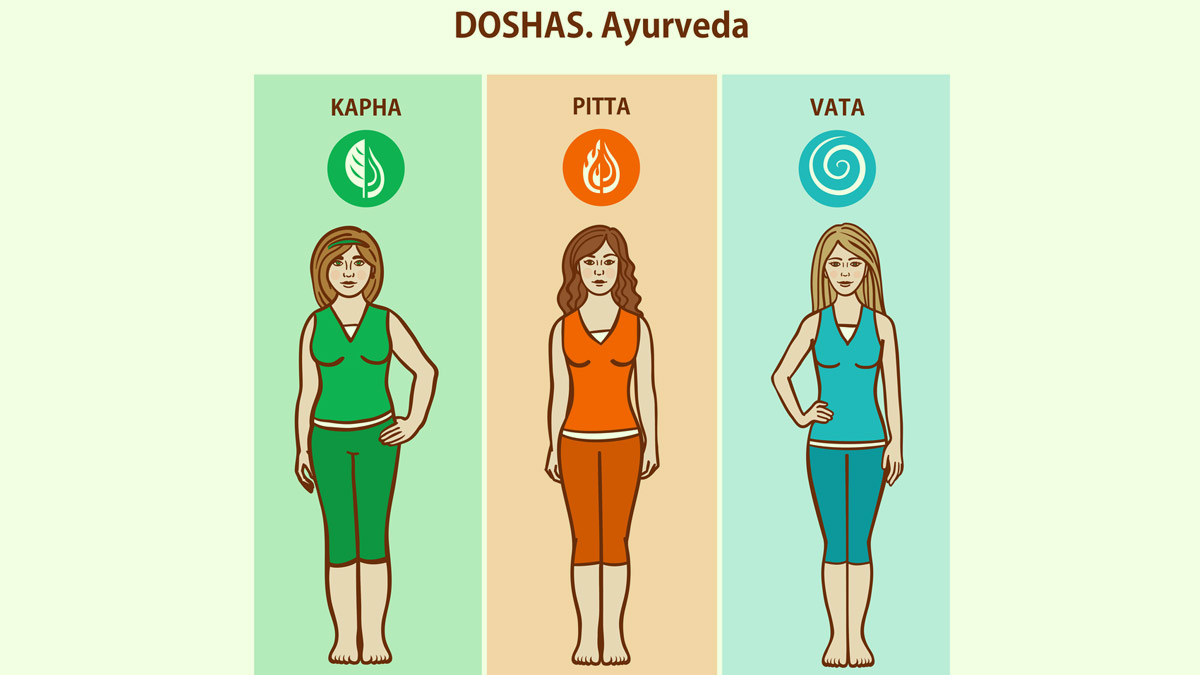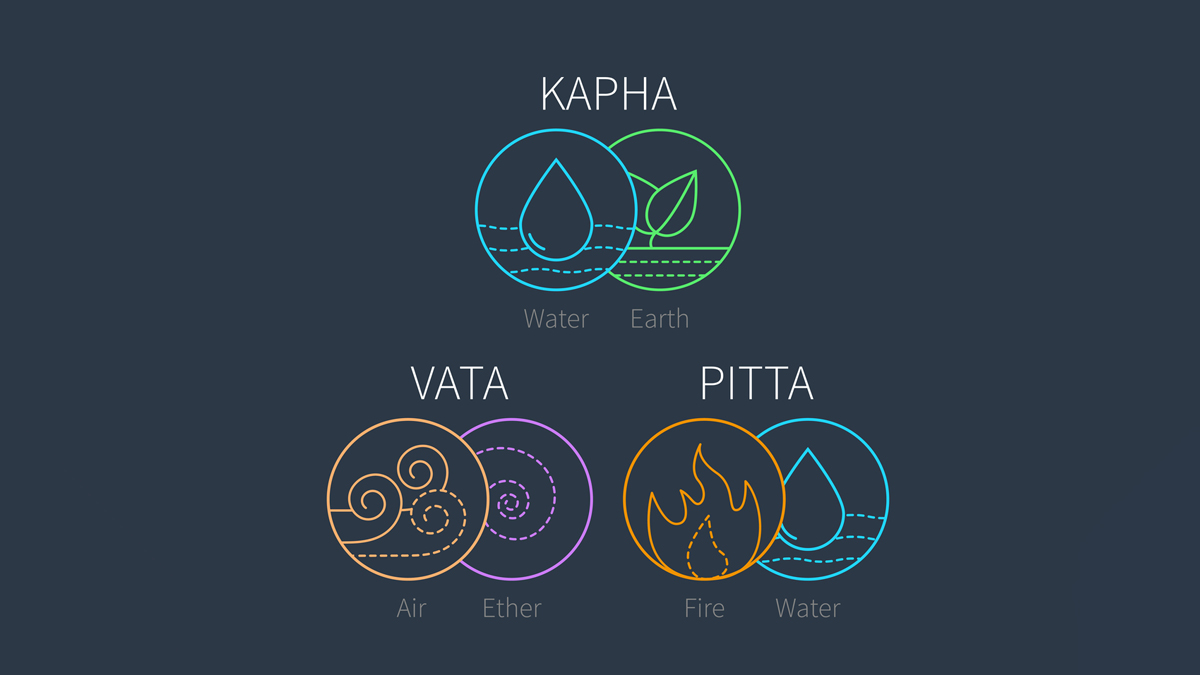
Ayurveda, an ancient Indian system of medicine, views health as a delicate balance between the mind, body, and spirit. A cornerstone of this philosophy is the concept of doshas, which are three fundamental energies or life forces that govern all physiological and psychological processes.
Table of Content:-
Ayurvedic Doshas
These doshas are Vata, Pitta, and Kapha. Each individual possesses a unique combination of these doshas, which forms their constitution or Prakriti.
Vata: The Energy of Movement
Composed of the elements of space and air, Vata governs movement, respiration, and creativity. People with a dominant Vata dosha tend to be thin, energetic, and enthusiastic. They are often creative, imaginative, and adaptable.
However, when Vata is imbalanced, it can lead to anxiety, insomnia, dry skin, constipation, and irregular digestion. A study by researchers from the MMM Government Ayurved College and published in the Journal of Ayurveda and Integrated Medical Sciences (J-AIM) states that many problems that Ayurveda calls vata disorders are actually problems with the brain and nerves, according to modern doctors.

Pitta: The Energy of Transformation
As stated in Pharmacognosy, 2017, made up of fire and water, Pitta dosha is the energy state of the body that governs metabolic and biochemical processes of the body that generate heat and energy. Pitta is responsible for digestion, metabolism, and transformation.
Pitta individuals are often intelligent, focused, and confident. They have a strong appetite and good digestion. However, an imbalance in Pitta can manifest as anger, heartburn, ulcers, inflammation, and skin problems.
Kapha: The Energy of Structure
Composed of earth and water, Kapha provides structure, stability, and lubrication. Kapha individuals tend to be calm, loving, and patient. A study published in J-AIM found that the fight or flight response is not easily evoked in Kapha individuals as their minds are steady and strong.
They have a strong physique and a good immune system. However, an imbalance in Kapha can lead to weight gain, sluggishness, congestion, and allergies.
Also Read: What Oil Should You Cook With? Know Suitable Cooking Oils As Per The Body Doshas

How Doshas Impact Health
Understanding your dominant dosha is crucial for maintaining optimal health. Ayurveda emphasises that balance is key. When the doshas are in harmony, you experience physical, mental, and emotional well-being. However, imbalances in any of the doshas can lead to various health issues.
For instance, a Vata imbalance might manifest as anxiety and insomnia, while a Pitta imbalance could lead to heartburn and irritability. A Kapha imbalance can result in weight gain and sluggishness.
Ayurveda offers a holistic approach to restoring balance. By making lifestyle modifications such as diet, exercise, and stress management tailored to your specific dosha, you can promote overall well-being.
Also Read: Doctor-Verified Ayurveda Tips For Summers According To Your Dosha
Determining Your Dosha
While it's possible to take online quizzes to get a general idea of your dosha, a comprehensive assessment by an Ayurvedic practitioner is recommended for an accurate determination. They can consider various factors including your physical appearance, personality traits, digestive patterns, and energy levels.
Remember, your dosha is not a fixed entity. It can fluctuate based on your lifestyle, diet, and environmental factors. Ayurveda emphasises the importance of seasonal changes and adapting your routines accordingly to maintain balance.
By understanding the principles of Ayurveda and your unique dosha constitution, you can embark on a journey towards optimal health and well-being.
Also watch this video
How we keep this article up to date:
We work with experts and keep a close eye on the latest in health and wellness. Whenever there is a new research or helpful information, we update our articles with accurate and useful advice.
Current Version